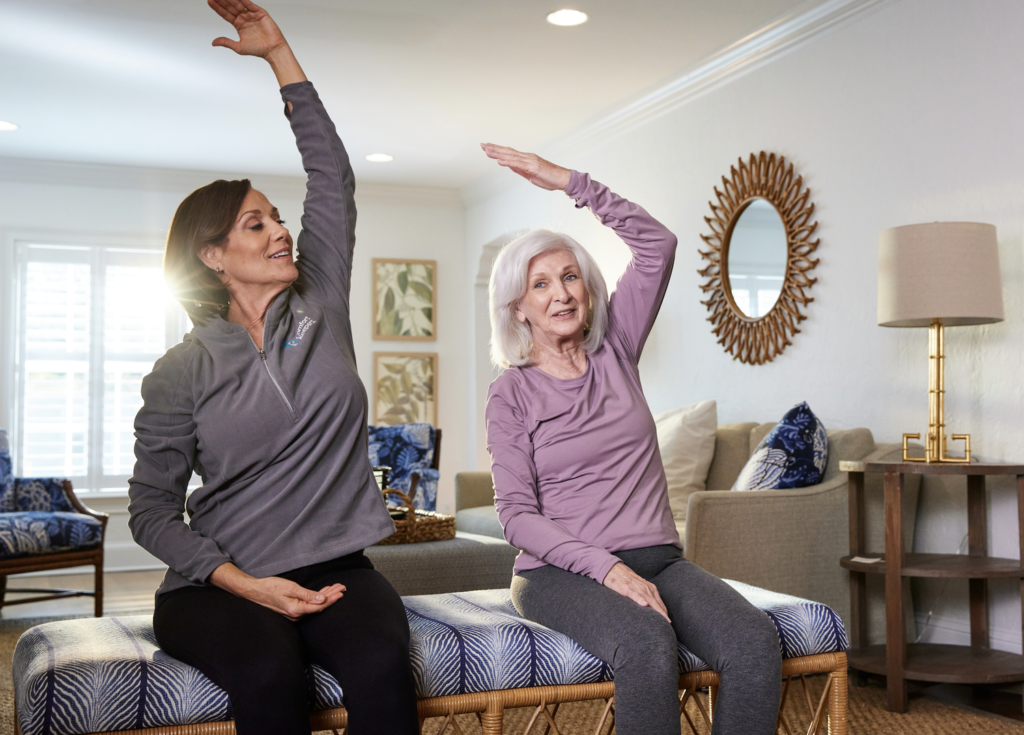Aging Gracefully: A Guide to Health and Well-being for Seniors
As age creeps in, our bodies experience a plethora of changes; however, the journey to maintaining a vibrant and active lifestyle doesn’t have to be daunting. With the right attention to exercise, nutrition, sleep, and supplementation, seniors are well-equipped to prevent disease and enhance their quality of life. This article delineates strategies tailored for each decade from the 60s to the 90s, ensuring a holistic approach to aging gracefully.
Embracing Fitness in Your 60s
The 60s often herald a phase of transition, marked by retirement and shifting family dynamics, providing an ideal opportunity to invest in physical well-being. The American Heart Association recommends a minimum of 150 minutes of moderate-intensity exercise weekly, complemented by muscle-strengthening activities. Low-impact exercises such as walking and swimming can be particularly advantageous, while yoga and tai chi not only improve flexibility but also significantly reduce fall risks.
Additionally, this decade necessitates careful attention to nutrition. With a slowing metabolism, seniors may require fewer calories but should emphasize nutrient-dense foods. Incorporating whole grains, lean proteins, healthy fats, and a rainbow of fruits and vegetables into daily meals is vital. Foods rich in calcium and vitamin D, like leafy greens and dairy, are crucial for fortifying bone health.
Prioritizing Mobility and Mood in Your 70s
As individuals transition into their 70s, preserving mobility and mental well-being takes center stage. Resistance training with light weights, combined with walking and water aerobics, serves not only to uphold strength but also to also boost cardiovascular health. Exercise in this decade plays a dual role: it combats physical decline and uplifts mood, which can be pivotal in mitigating feelings of depression and anxiety.
Nutritional requirements also evolve at this age. The body may struggle with nutrient absorption, making it essential to prioritize balanced protein intake to safeguard muscle mass. Foods fortified with vitamin D, including cereals and fatty fish, are particularly beneficial in asserting bone health.
Health Maintenance in Your 80s
Upon reaching the 80s, the focus transitions to health maintenance and disease prevention, particularly as appetite may wane. It becomes imperative to prioritize easy-to-digest, nutrient-dense options like soups, smoothies, and lean proteins. These foods not only cater to changing appetites but also underpin heart health through healthy fats found in foods such as olive oil and avocados.
Physical activity remains vital for this demographic. Emphasizing functional exercises—such as squatting and stretching—helps in maintaining strength and mobility, while specific fall prevention exercises minimize injury risks. Attention to sleep is equally crucial, as many experience disorders like insomnia or sleep apnea. Incorporating relaxation techniques like deep breathing or meditation can significantly enhance sleep quality.
Enhancing Longevity and Comfort in Your 90s
As one enters the 90s, adjustments to lifestyle become ever more critical, though physical limitations might arise. Engaging in light activities like stretching, chair yoga, and gentle walks serves to sustain muscle function and balance. Despite diminished energy needs, nutrient-dense foods remain essential; thus, prioritizing items rich in calcium, vitamin D, and protein is vital for combating muscle wasting.
A robust sleep routine becomes necessary to mitigate disrupted cycles often prevalent in this age. Establishing consistent sleep schedules alongside gentle evening rituals can greatly improve rest. Moreover, specialized care for nutritional intake may be required, focusing on omega-3s, vitamin B12, antioxidants, and calcium as foundational elements for cognitive function, bone health, and overall vitality.
The Role of Supplementation
Throughout the aging process, the ability to absorb vital nutrients can decline, highlighting the importance of supplementation. Particularly in the 70s and beyond, maintaining adequate levels of vitamins and minerals—especially vitamin D, calcium, and magnesium—is crucial for sustaining health. Additionally, antioxidants (like vitamins A, C, and E) can be instrumental in immune function and disease prevention. Blood tests can help identify deficiencies, guiding necessary supplementation tailored to individual health needs.
Achieving Wellness in Later Life
At Comfort Keepers, we believe that seniors can enjoy independence at home while embracing a life characterized by regular exercise, balanced nutrition, sufficient sleep, and tailored supplementation. Implementing these strategies throughout the decades not only facilitates physical well-being but also promotes emotional and cognitive health, encouraging seniors to flourish in their later years.
In conclusion, aging gracefully is not merely a concept; it is a reachable reality with the right support and lifestyle choices. As seniors turn the pages of life, adjusting exercise, nutrition, sleep patterns, and supplementation with time can foster a fulfilling and vibrant existence. Whether through community connections or professional assistance, the journey to robust health is well within reach for everyone, regardless of age.









